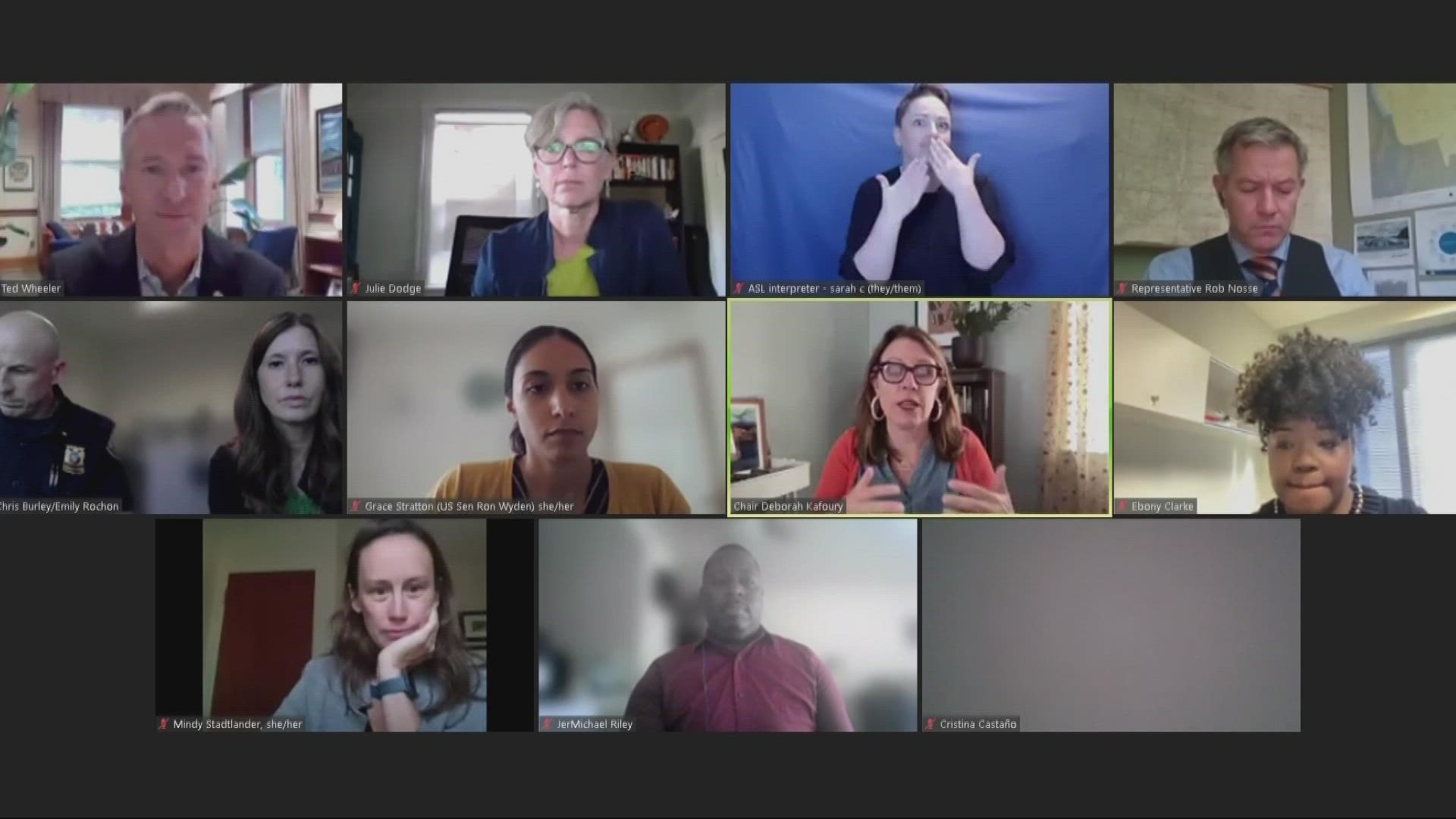PORTLAND, Ore. — Portland Mayor Ted Wheeler and Multnomah County Chair Deborah Kafoury hosted a virtual discussion virtual discussion on Tuesday with behavioral health stakeholders about what should be done to better address the needs of people in crisis.
The people working in behavioral health explained they're working hard to address the growing issues, but admit there's a lot that still needs to be done.
"I'm really thankful that we're seeing a shift at federal, state and local levels to not just add resources for people that are experiencing a crisis of mental health or substance use, but to support them after the crisis has passed," said Kafoury. "We know there is no one-size-fits-all solution, but we do know what the solutions are, and that is meeting people's basic needs."
OTHER STORIES: Uncommitted: How high standards are fueling a cycle that can fail people with serious mental illness
During the hour-and-a-half discussion, leaders heard from people involved at every level of crisis response in the Portland metro. Speakers broadly noted a need for more shelter space and housing, and a more streamlined process in accessing services, like sobering and treatment centers.
One solution already in the works is the new Behavioral Health Resource Center downtown. Phase one will be a day program to serve the homeless community, which will open mid-November.
During Tuesday's meeting, Rep. Rob Nosse ran down a list of potential bills in the upcoming 2023 legislative session. Among them were bills to address problems at the Oregon State Hospital, to add more residential treatment facilities and to increase funding to community behavioral health clinics.
"Eventually, we are going to get to the behavioral health nirvana in this state," he said. "It may take a couple of legislative sessions, but we are working on it."

